Civil Liberties, Criminalizing Dissent, FBI Intrusion, Guantanamo, Habeas Corpus, Human Rights, Prison Industry, Supreme Court, Targeting Muslims, Torture, Truth to Power
Podcast: Play in new window | Download
Updates:
—
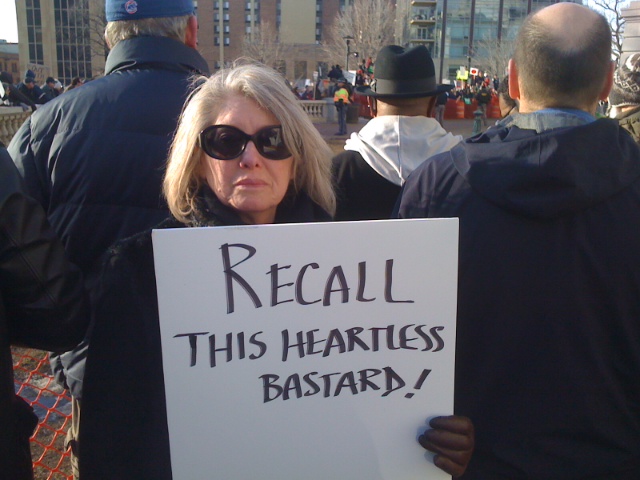

Wisconsin Labor Demonstrations Update
Organized labor is in the cross-hairs to be taken apart by the American elite. Last month, 10 thousand people continued a multi- day occupation of the Wisconsin State Capitol building while tens of thousands chanted outside. Meanwhile the country is gripped by the drama unfolding in Wisconsin and it has inspired unions in other states to move in solidarity. Among those states are Montana, Indiana, Ohio, Michigan, Pennsylvania and New Jersey. Listeners may remember that Wisconsin trade unions have already conceded to wage and benefit cuts. Now the state is voting to repeal Section 11170, the Public Employee Bargaining Chapter. Update: Wisconsin GOP Allows State To Fire Employees For Strikes, Walkouts
Attorney Lester Pines:
- Governor Walker is clearly a stocking horse for the far right wing of the Republican Party.
- I’m not surprised at his behavior, he behaved this way as a Milwaukee County executive.
- I told people he was going to try to repeal section 11170 which is the Public Employee Bargaining Chapter
- What’s at stake is an attempt by the governor and the legislature to strike at the heart of the Wisconsin tradition of organized labor.
- Public employee bargaining has been in Wisconsin for 50 years. This is an attempt to tear apart generations of how Wisconsin operated.
- On a federal level, this is an attempt to wipe away outside groups that democratic and progressive candidates.
- Wisconsin has a bi-annual budget. The legislation is part of budget repair bill. In that legislation is a bill to eliminate all collective bargaining for all municipal and school district employees as well as for state employees.
- There will be no bargaining if this bill passes. The only thing that can be bargained with is wages.
- The bill also imposes a cap on wages. These are designed to essentially make it impossible for public employee unions to function in any meaningful way.
- Scott Walker didn’t talk about what he would actually do.
- If we look at the mass demonstrations in Madison. These are the biggest demonstrations I’ve ever seen here.
- Impeachment is impossible because Republicans control the legislature and Senate, however he can be recalled.
- The Democrats can’t be arrested in a criminal sense,
- Governor Scott Walker has reignited the progressive movement in Wisconsin.
- Until you get these Republicans out of office they’re going to do a lot of damage. They’re nihilists. They care nothing for public services. They care only for what their corporate puppeteers want them to do.
- It looks like this whole anti-public union movement was actually planned out amongst all these new governors.
Guest – Labor attorney Lester Pines, in practice since 1975, he leads the Litigation area, concentrating in civil trials, criminal defense, labor & employment, and business. A Fellow in the American College of Trial Lawyers, Mr. Pines is a highly respected civil and criminal litigator who has appeared in courts throughout Wisconsin and litigated federal matters in Wisconsin, Illinois, Iowa, Ohio and New York.
————————–
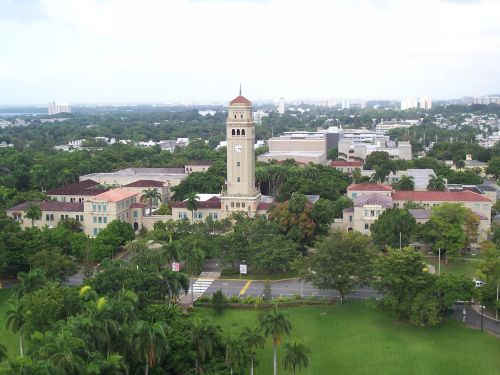

Human Rights Crisis Continues In Puerto Rico
More than a year ago nearly 100 thousand people took to the streets of San Juan, Puerto Rico to protest the lay off of about 17 thousand public employees. The demonstration shut down all state-owned enterprises including the island’s schools and colleges. Two days before that strike the governor passed a bill aimed at dismantling the Bar Association. Protesters were warned that if they stopped commerce, particularly the docks and airports, that action would be sanctionable to federal law. Now, as human rights violations continue, as students and faculty demonstrate against dismantling of progressive curriculum and tuition hikes. ACLU of Puerto Rico, “Human Rights Crisis in Puerto Rico: First Amendment Under Siege.” Law and Disorder Interview with Judy Berkan October 2009
Attorney Judy Berkan:
- Wholesale attack on institutions of Puerto Rican society where any dissent could be lodged.
- The Puerto Rican Bar Association, a real forum for those without a voice. Attacks have come to the Bar Association, elimination of mandatory Bar membership and imposed draconian restrictions upon the Bar Association. They took away a great deal of our funding.
- The president of the Puerto Rican Bar Association was jailed for speaking out against a lawsuit that could take away life insurance from poor lawyers.
- There’s a one month prohibition on leafleting and expression in the University of Puerto Rico.
- The closing of the legislative chambers. Right now there is a US Department of Justice investigation and talk of a trusteeship of the police department here.
- The use of the tactical operations of the police to repress dissent has been intensified.
- All of our public spaces are being closed off to legitimate dissent, while people engaged in peaceful dissent are being attacked.
- Austerity: Part of the remedy of the economic crisis there was an increase in tuition of 800.00. But much more at stake.
- More than that there is question of the vision the University of Puerto Rico will take in the future.
- The emphasis appears to be on privatization as it is throughout the government. We been suffering these programs since 2009.
- We were the guinea pigs. There’s more violence here, if we occupied the state house here, we would’ve been met with pepper spray, gas and beatings as we were when we attempted to demonstrate outside the state house last June.
- The economic programs are really the model that’s being used by Republican governors in the US
- The University situation is really wallowing in the wind without a real solution.
- The Bar Association and their presence is very crucial to public debate in Puerto Rico.
- I think people are getting tired, we do have 2 more years left of this administration.
- The police department is still in the hands of a former FBI agent who has openly encouraged violence against protesters. We have a raging crime rate.
- What’s distressing for all of us here who care about these matters is the media black out in the United States.
- Are we training people to be managers at McDonald’s or are we training people to think about the future of Puerto Rico?
Guest – Attorney Judith Berkan, is a partner in the San Juan law firm of Berkan/Mendez. She specializes in government misconduct litigation and employment discrimination cases. Berkan worked as an attorney in New Haven, Connecticut before going to Puerto Rico as the staff attorney for the Puerto Rico Legal Project of the National Lawyers Guild, now the Puerto Rico Civil Rights Institute. For twenty-seven years, she has been teaching, primarily in the Constitutional Law area, at the Inter American University Law School in San Juan, Puerto Rico.
A frequent speaker and author of many articles on civil rights issues, she was the President of the Human Rights Commission of the Puerto Rico Bar Association in the mid-1990?s and a member of the Commonwealth Supreme Court’s task force on gender discrimination.
————————–

Left Forum 2011
The 2011 Left Forum convenes this Spring, March the 18 to the 20th. This is the largest annual conference of a broad spectrum of left and progressive intellectuals, activists, academics, organizations and the interested public. Conference participants come together to engage a wide range of critical perspectives on the world, to discuss differences, commonalities, and alternatives to current predicaments, and to share ideas for understanding and transforming the world.
Guest – Stanley Aronowitz Distinguished Professor of Sociology at CUNY Graduate Center, where he is Director of The Center for the Study of Culture, Technology and Work. He has taught at Staten Island Community College, University of California-Irvine, University of Paris, Columbia University, and University of Wisconsin.
——————————————————————————————–
Civil Liberties, Criminalizing Dissent, FBI Intrusion, Gaza, Human Rights, Political Prisoner, Prison Industry, Targeting Muslims, Torture, Truth to Power, War Resister
Podcast: Play in new window | Download
Updates:
—–

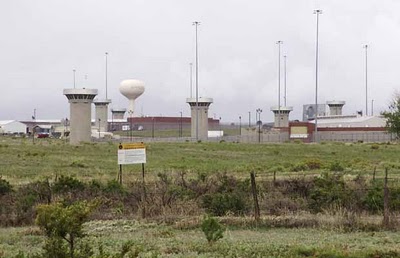
Ohio Supermax: Hunger Strike In Long Term Solitary Confinement
In an Ohio Super Max prison, 4 prisoners facing execution are confined to permanent restrictive solitary confinement. They’re on a hunger strike, bringing attention to their requests to simply be placed on death row. What’s the difference? Death row isn’t as restrictive as permanent solitary confinement. Jules Lobel, Vice President of the Center for Constitutional Rights and Professor of Law at the University of Pittsburgh explains in detail the differences of regular prison, death row and solitary confinement conditions.
Jules is working to defend the prisoners, he says that long term, essentially permanent and very harsh solitary confinement is both cruel and unusual punishment that violates due process requirement of annual review. The state of Ohio has decided to keep these four in solitary confinement permanently. It’s not only in Ohio, permanent solitary confinement is becoming a problem nationally, particularly with people convicted of terrorism related offenses, including material aid to terrorism.
Jules Lobel:
Guest – Jules Lobel, through the U.S. Center for Constitutional Rights, Jules has litigated important issues regarding the application of international law in the U.S. courts. In the late 1980’s, he advised the Nicaraguan government on the development of its first democratic constitution, and has also advised the Burundi government on constitutional law issues. Professor Lobel is editor of a text on civil rights litigation and of a collection of essays on the U.S. Constitution, A Less Than Perfect Union (Monthly Review Press, 1988). He is author of numerous articles on international law, foreign affairs, and the U.S. Constitution in publications including Yale Law Journal, Harvard International Law Journal, Cornell Law Review, and Virginia Law Review. He is a member of the American Society of International Law
——
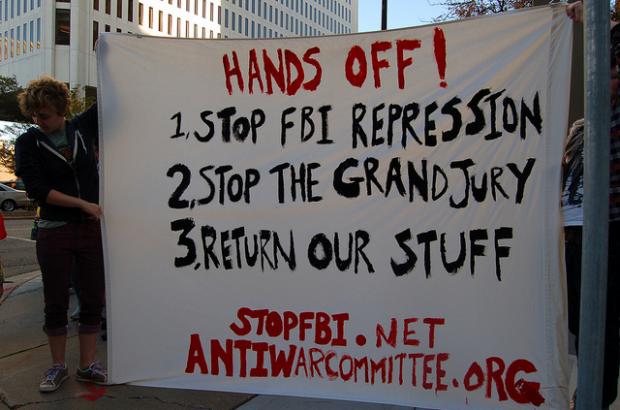
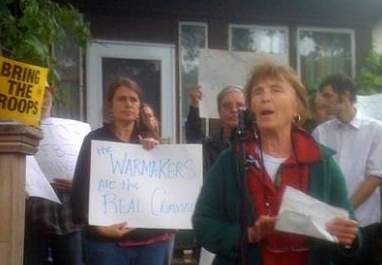
Defending Grand Jury Protesters
As many listeners know, last September in a nationally coordinated raid, the FBI targeted anti-war and Palestinian solidarity activists, raided their homes and subpoenaed them to appear before a grand jury. The 13 people all of whom were critical of US foreign policy, later withdrew and asserted their right to remain silent. But in early December of 2010 subpoenas were reissued against 4 of those targeted in the raids. Three women in Minneapolis, Tracy Molm, Anh Pham, and Sara Martin were sent reactivated subpoenas by Fitzgerald’s office and new Grand Jury dates.
We’re joined by Chicago based journalist and activist Maureen Murphy who also received a new subpoena. Maureen is managing editor at the website Electronic Intifada, though the site is not being targeted in the FBI probe. In a statement, the Electronic Intifada said, quote, “Although The Electronic Intifada itself has not been a target, we consider the grand jury investigation and all of the subpoenas to be part of a broad attack on the anti-war and Palestine solidarity movements and a threat to all of our rights.”
We are also joined by regular guest, attorney Michael Deutsch from the People’s Law Office and is working with the defense committee.
Maureen Murphy:
- I don’t know why its happening, we do know that no crime has been identified. There’s nothing written on my subpoena that I need to bring any documents.
- We believe that the government is subpoenaing us so that we come before a grand jury and name names, and tell them how we organize so they can further disrupt their movement. I’m one of 23 activists now who have gotten the knock at the door. My subpoena says nothing but show up, so I think this is really a fishing expedition.
- In one home they took everything with the word Palestine on it.
- The government has expended a lot of resources on an investigation of a group that has always worked pubicly to advocate for a more just US policy. I was visited by the FBI on December 21, 2010.
- A national committee that has formed around the raids and subpoenas is calling for a day of action January 25, in front of federal buildings and FBI headquarters.
- I’ve already stated that I’m not going to testify.
———
Michael Deutsch:
- In December the FBI went out with a stack of subpoenas, and wound up subpoenaing 9 additional people in the Chicago area which then makes 23.
- These people who are subpoenaed are all active in Palestinian support work. Arab American Action Network, Palestinian Support Group. This next wave of subpoenas are people who are they’re trying to gather information from.
- I’ve never in all my experience seen so many people subpoenaed to a grand jury.
- A lot of the Palestine support work has gone on in Chicago.
- Originally 14 people were subpoenaed and each one through their lawyer said they weren’t not going to voluntarily come in. Now they haven’t decided to enforce the subpoena, they said well get back to you when we decide what we’re going to do.
- There are 23 people lined up trying to figure out what the next step of the government is.
- These prosecutors don’t seem to know who they’re dealing with. They see the grand jury as a tool of oppression.
- I believe that the Israeli security apparatus is involved in supplying information to the US government.
- There’s no evidence here of any type of violence or weapons. We’re dealing with advocacy and associations.
- Despite Holder v the Humanitarian Law Project, we believe that it’s a total violation of the First Amendment.
- The underlying tenor is going after people because of their political ideology.
Guest – Maureen Murphy is a journalist and Palestine solidarity activist from Chicago. She spent a few years living and traveling throughout the Middle East, interning for the Palestinian human rights organization Al-Haq in the occupied West Bank in 2004-06 before she was denied entry and deported by the Israeli government. She also lived in Lebanon in 2007, learning about the human rights situation for Palestine refugees and the impact of U.S. foreign policy there.
Guest – Michael Deutsch, attorney with the People’s Law Office in Chicago.
Civil Liberties, Human Rights, Prison Industry, Truth to Power
Podcast: Play in new window | Download
Updates:
—
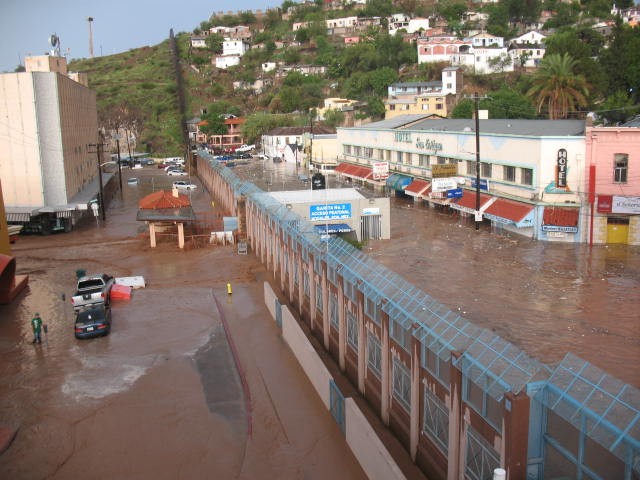
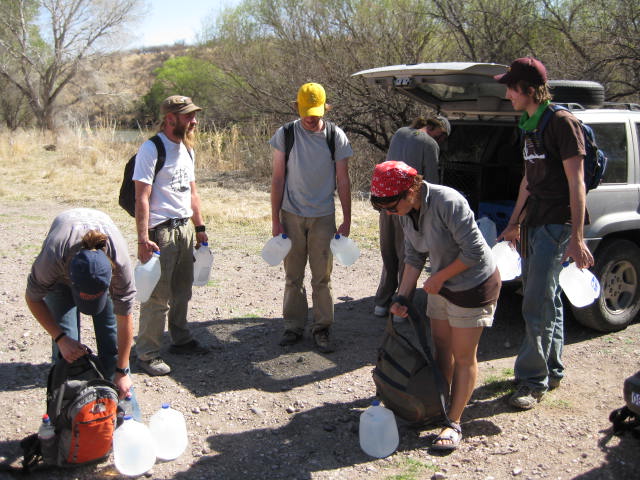
No More Deaths: Jake Ratner and Elena Stein
Hundreds of immigrants are pulled from their families and bused to Nogales, Mexico every day. The families are broken apart as deportees most of whom have been working in the US without a criminal charge, are left in limbo in this foreign city. No More Deaths, the humanitarian organization is also stationed in Nogales to provide basic first reponse aid to deportees. Many immigrants arrive in Nogales after serving months in jail. Jake Ratner and Elena Stein volunteered with No More Deaths and witnessed the sentencing process called Operation Streamline. A system that funnels 75 immigrants every day through a mass court proceeding where they are sentenced up to 6 months in jail. Very few are allowed to explain their situation in court.
Jake Ratner / Elena Stein:
- We were living in Patagonia, Arizona, which is near Nogales, Arizona. There’s a wall in Nogales separating the US and Mexico. The wall is about 15-20 feet high. It was built by the same company contracted to the build the wall in Israel / Palestine.
- It’s right down the middle of the city, so there’s Nogales, Arizona and Nogales, Mexico.
- In the morning we drive 20 minutes to Nogales Arizona. We push our way through a turnstile gate. As we walk in we pass a very long line of those waiting to come in from Mexico.
- No More Deaths provides phone calls to recently deported people so they can have that first phone call to their families. We provide them with property recovery, items that were confiscated can be recovered to them.
- Most the people who we come across have been living the US for a long time. Most have families living in the US. More men than women.
- Some people are found by being pulled over by the police with a broken tail light. They get handed to ICE and then to Border Patrol. Others will get a knock on the door, because there is belief that someone doesn’t have papers.
- This is a new phenomena, that people living in the United States 15 – 20 years are being deported.
- There was a campaign put on by (correction) United Farm Workers saying “Here take our jobs.” (picking tomatos) You want our jobs? Take our jobs. They ran a 2 month campaign. No one. No one wanted those jobs.
- One or two people a day are dying making the trek from Mexico and crossing the desert to the US. The change that we’ve seen is that more people are dying. Streamlining is the process where they take the 75 of the 300 people crossing the border everyday and put them on trial together.
- Corrections Corporation of America wrote this law. This private company sat down with legislators and wrote of Operation Streamline.
- They’re getting money from the tax payers to fill these jails and profit off of Mexican citizens. Operation Streamline has not proven to be a deterrent. The Dream Act / Secure Communities.
- I think there is a responsibility as Americans for us to first understand the realities that people are experiencing everyday as a result of actions that were taken by our country and have a responsibility after understanding it to try and do something about it.
- We have an obligation to have good relationships with our neighbor. It’s Mexico, our neighbor. The more we try to understand the system we’ve become part of, the more we become repulsed at our own participation.
- Corrections sent in from a volunteer at No More Deaths, monitoring Operation Streamline: “the Border Patrol sends up to 70 (never more) of those whom they have apprehended to OS in Tucson, daily, Monday through Friday. The majority are sentenced to “time served” (most have been held 3 or 4 days), given a permanent criminal record and deported. Those who have been deported previously (usually between 20 and 30 people) are charged with the felony of “reentry after deportation” and are sentenced to prison for anywhere from 30 to 180 days. The magistrates always ask the detainees if they want to say anything in court, but few ever do. “
Guest – Jake Ratner -son of co-host Michael Ratner. Jake graduated from the University of Pennsylvania. He’s traveled and studied in Cuba and Bolivia, South America.
Guest – Elena Stein – has worked with recent deportees on the Arizona-Mexico border. She graduated last year from the University of Pennsylvania. She has worked with human rights groups in the US and Central America, specifically with children.
—–

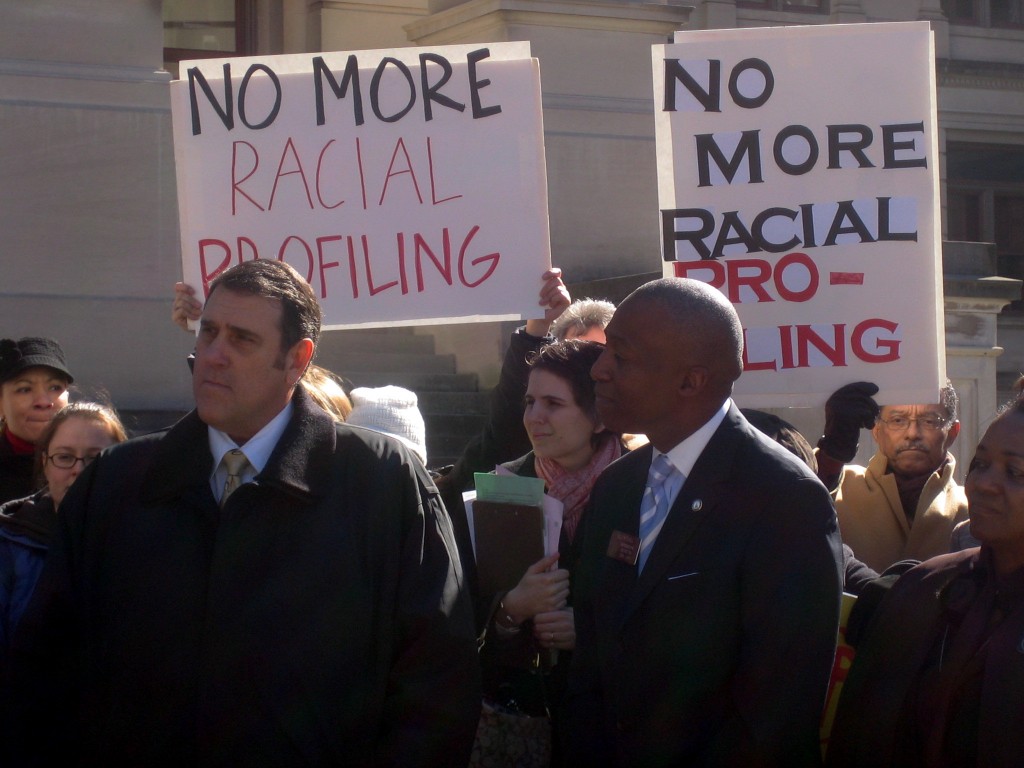
Lawyers You’ll Like – Azadeh Shahshahani
For our Lawyers You’ll Like series, Azadeh Shahshahani joins us. Azadeh is the Director of the National Security /Immigrants’ Rights Project at the ACLU of Georgia. That’s a project aimed at bringing Georgia into compliance with international human rights and constitutional standards in treatment of refugee and immigrant communities. This also included immigrant detainees. She is the editor of two human rights reports one on racial profiling: “Terror and Isolation in Cobb: How Unchecked Police Power under (federal law) 287G Has Torn Families Apart and Threatened Public Safety” and “The Persistence of Racial Profiling in Gwinnett: Time for Accountability, Transparency, and an End to 287G.” Azadeh also serves as Executive Vice President and International Committee Co-chair for the National Lawyers Guild.
Azadeh Shahshahani:
- I work on immigrants’ rights and post 9/11 security issues with the ACLU of Georgia
- 287g turns law enforcement into immigration officials.
- There are four counties in Georgia that have 287g. These are counties with long and documented racial discrimination. The numbers (of those picked up and processed through 287g) have gone up tremendously in one county, 2 thousand plus people in Cobb County.
- A lot of them have ties to the community, have US citizen spouses or children.
- Sometimes it’s not clear why people get pulled over, there’s no moving violation on the ticket. Georgia doesn’t have an anti-racial profiling law on the books so there’s no way to hold the police accountable.
- Detention Centers: Some are run by the government, others are run by counties, jails, then private corporations.
- In Georgia, you have 2 operated by the Corrections Corporation of America, then you have City of Atlanta jail that rents space to ICE.
- The Obama administration boasted that it deported 400 thousand people.
- Lawsuit against ICE, seeking safeguards that US citizens aren’t deported and people with disabilities are afforded a measure of due process. Georgia Detention Watch
- Stuart Detention Center Report: 16 men per one toilet. No contact visits.
- I came to US when I was 16. I went to law school in Michigan. After law school I knew that I wanted to do human rights work. I approached the ACLU of North Carolina and proposed a project focusing on empowerment, know your rights presentations at the mosques. Also putting together an anti-racial profiling campaign.
- State Must Enact Anti-Profiling Laws
Guest – Azadeh Shahshahani, the Director of the National Security/Immigrants’ Rights Project at the ACLU of Georgia. The project is aimed at bringing Georgia and its localities into compliance with international human rights and constitutional standards in treatment of refugee and immigrant communities, including immigrant detainees. To that end, a variety of strategies are employed, including the development of impact litigation, legislative advocacy, providing training to attorneys, human rights documentation and the publishing of reports, public education, and coalition and movement building. The current focus areas of the project include: immigration detention, racial profiling and local enforcement of immigration laws, governmental surveillance, discrimination faced by Muslim, Middle Eastern, and South Asian communities, immigrant access to higher education, and language access in the court setting. Azadeh’s opinion pieces have appeared in print and online publications such as the Atlanta Journal Constitution, the Fulton County Daily Report, and the Huffington Post.
—————————————————
Climate Change, Criminalizing Dissent, Extraordinary Rendition, Human Rights, Political Prisoner, Prison Industry, Torture
Podcast: Play in new window | Download
Updates:
—–

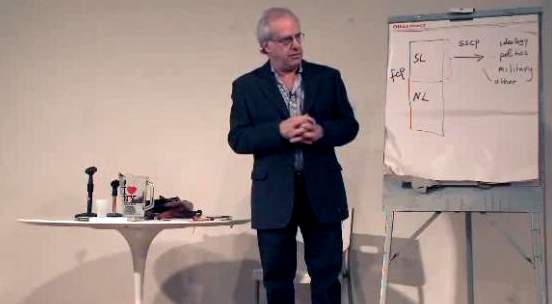
Economic Recovery? Austerity in the US and Abroad
In our previous interview with Professor of Economics, Rick Wolff, we talked about austerity, that is imposing on society a severe regimen of rising taxes, or cut government spending to please and satisfy creditors. Massive protests erupt against austerity in Greece, Portugal, Ireland and soon maybe Spain, as governments raise college tuition, taxes, retirement ages plus cutting worker benefits and wages. These austerity measures are about to hit the United States. Veiled in the recent tax deal with the Republicans is a decision Americans will need to make. Higher taxes or cut services? With growing debts made worse by Obama’s tax deal, the US moves quickly toward austerity while the political establishment and the media mostly pretend all is well says Rick Wolff.
Professor Rick Wolff:
- In order to get anything through, the President had to accomodate the richest people in the United States and the biggest corporations. I’m going to allow you to pass even more wealth to your children or the people who inherit your estate. Here’s an extra gift, the estate tax.
- These are the people who did the best over the last 30 years. Wage earners and salary earners went nowhere, but people rich enough to own shares in the stock market made out like bandits.
- Estate tax, you can earn money for the state to run services we all need by taxing the super-rich so they’re not quite so far ahead. What this last bill does . . rich people in America were already allowed to leave 3.5 million dollars for each person (husband/wife) to their children or anyone else and the federal government wouldn’t touch it.
- Less than one half percent of Americans who even have this amount of money.
- This new law raises the amount from 7 million per couple to 10 million per couple. The new tax law also reduces the amount to pay from 45 to 35 percent. A gift in the millions for the super-rich.
- Translating into billions of dollars that are now going to be saved by the richest people in the United States. We’re going to be talking about the difficulties the government has in doing things because it doesn’t have money. The government just gave away the store to richest one half of one percent.
- What the rich do when they get a break like this, and when you turn to Wall Street, the hottest investments are in other parts of the world. Funding economic development in other parts of the world.
- Unemployment is as high as it was a year ago. Foreclosures are running at a multi-million dollar clip per year.
- Last month the Federal Reserve decided to print another 600 million dollars. My view is we’ve got years of unemployment ahead of us, years of a disasterous housing market, very few signs of recovery.
- The worst has yet to hit. It takes time for states to crumble.
- The municipal bond market, the debts of cities and towns are going to see significant default.
- You need organization to act in historic moments that moments where people need action.
- The flow of jobs from the United States to other parts of the world is continuing. American corporations don’t see the US as a “growth area.” They’re focused elsewhere.
- We’re becoming a society where large numbers of people are living on the margins. It’s a new experience in this country after a century of being a little different from that.
Guest – Richard D. Wolff is Professor of Economics Emeritus, University of Massachusetts, Amherst where he taught economics from 1973 to 2008. He is currently a Visiting Professor in the Graduate Program in International Affairs of the New School University, New York City. He also teaches classes regularly at the Brecht Forum in Manhattan.
———–
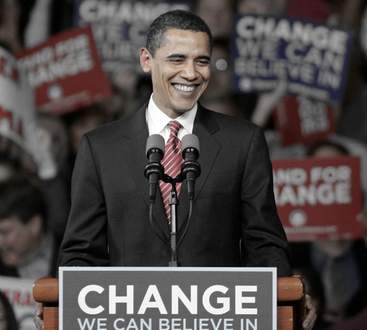
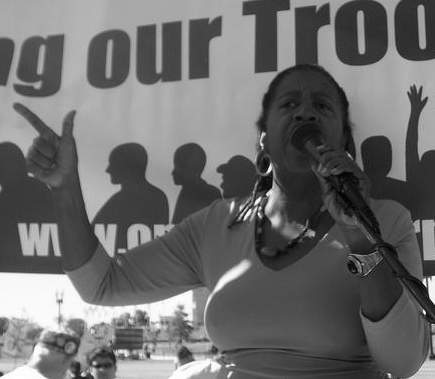
Two Year Evaluation of the Obama Administration
There is a long list of items progressive Americans had hoped to accomplish through the Obama Administration. In our interview with Roger Hodge, author of The Mendacity of Hope: Barack Obama and the Betrayal of American Liberalism, Hodge says Obama didn’t fight for anything worth fighting for. With corporate backers such as Goldman Sachs, Morgan Stanley and Citi-Group, the Obama Administration has been severely compromised. These corporations expect something in return. The Obama Administration has been criticized for expanded the wars abroad from Iraq, Afghanistan, Pakistan and Yemen, criticized for continuing the Guantanamo detention policies, the Wall Street bailouts and bargaining with the Healthcare bill as a bailout for insurance companies. In this aftermath of 2010 and we look back to 2008.
Nellie Hester Bailey:
- A browner hue of imperialism. The policy of the US government at home and abroad would remain the same. When we look at the platform of then presidential candidate Barack Obama, he made very clear that he was a centrist candidate. In many instances to the right of Hillary Clinton, if one can imagine that.
- We were never taken in, mesmerized, blinded . . we knew very well who he was.
- He has proven to be much worse than anticipated. Not for me but for my colleagues who were cautiously optimistic.
- On January 20th, President Obama is going to deliver his State of the Union Address. Everyone expects this is going to be the prelude for another deadly compromise for the working class.
- There was a study done in the Guardian newspaper and amazingly African Americans were more optimistic about their economic situation and felt much more secure under Barack Obama’s administration than ever before. When in fact just the opposite is true.
- African Americans have lost trillions of dollars in the housing crisis, the mortgage scam.
- We have to remember it was President Barack Obama that gave the banks a free ride.
- We have added 9 billion dollars to the deficit with this tax cut deal, that is extending the tax cuts to the 2 percent of the wealthy. We are supposed to believe that he did this for us? The poor and the working class?
- Unlike the right wing, I believe he will be a one term president.
- What we need for the working poor and African Americans is the blinders to be pulled off, so people can see what it is that we are dealing with. When you look at the report from the CDC where have a 50 percent increase in the number of people that are uninsured.
- The work force is being reduced, we are expected to work longer hours, we are expected to retire later in life, we are being worked to death. These are the undeniable realities.
- You can no longer herd the people like sheep into this nightmare of compromise.
- After 2 years, I think progressives for Obama need to step back and realize their responsibility for building a working class people, multi-racial movement.
- You have to commit to a movement, you don’t do that as an individual.
- Open Letter to encourage self-proclaimed left leaders such as Bill Fletcher, Tom Hayden and Barbara Ehrenreich to move from critical support into active opposition of the administrations agenda.
- I co-host a program with Glen Ford who is the Executive editor of Black Agenda Report.
- Black Agenda Report, we air on Mondays at 5 PM.
Guest – Nellie Hester Bailey, human rights activist who has worked in peace and justice movements for over forty years. From her early organizing with the Student Non-violent Coordinating Committee, to tenant rights and anti-war struggles, to advocacy on behalf of women Bailey has been at the forefront of social justice and social change organizing. Bailey co-founded the Harlem Tenants Council (HTC) in 1994. She currently serves as Director of the tenant led grassroots organization based on the self-determination tradition of radical activism that provides anti-displacement organizing for poor and working class families primarily in Central Harlem
Bailey is co-founder of Blacks in Solidarity Against the War that in 2005 help stage the largest anti-war demonstration in Harlem since the invasion of Iraq. A founding member of Cuba Solidarity New York, Bailey traveled to Cuba on three separate occasions.
————-
CIA Sponsored Terror, Civil Liberties, Criminalizing Dissent, FBI Intrusion, Gaza, Green Scare, Human Rights, Prison Industry, Surveillance, Truth to Power, Uncategorized
Podcast: Play in new window | Download

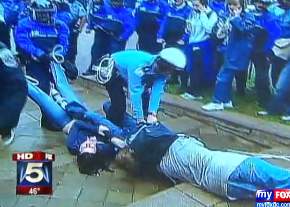
Lawyers You’ll Like Series: Mara Verheyden Hilliard Part II
Today we’re joined by attorney Mara Verheyden Hilliard co-founder of The Partnership for Civil Justice Legal Defense & Education Fund in the second part of our Lawyers You’ll Like series. Mara and her partner Carl Messineo have worked to defend and advance fundamental civil, constitutional and human rights secured by the U.S. Constitution and under law. We talk about her work, and criminalizing dissent, surveillance, data mining, and FBI harassment. A lot of Mara’s work is at the intersection of first and fourth amendment rights, such as the assault on free speech, assembly and misuse of datamining tools. The Partnership for Civil Justice has many victories, and recently a settlement was reached in a class action lawsuit about the illegality of the arrests of approximately 700 protesters and other persons on Saturday, April 15, 2000 in Washington, D.C.
Attorney Mara Verheyden-Hilliard:
- I co-founded the Partnership for Civil Justice in 1994 with Carl Messenio. We decided we wanted to do this work specifically, Constitutional rights, civic justice, public interest litigation.
- We began this work right after we left law school. We undertook some of the longest running protest cases that we had, in particular, the recently settled class action from the April 2000 mass arrests.
- I grew up in Washington DC and I spent my childhood going to civil rights demonstrations, anti-war demonstrations, having our house filled demonstrators. Both of my parents are deeply political people who care very much about civil rights, liberation struggles and womens’ rights.
- The core of the work we do we recognize as the underlying social justice movement.
- The municipalities, the governments, they want these cases to go on as long as possible, they want to fight a war of attrition, because they want plaintiffs to feel they have to take toothless settlements.
- The fact is the law has changed in DC, we’ve changed the way police operate. They can’t use these tactics, these tactics we took apart piece by piece have been removed from the arsenal of the police department in DC.
- The DC police can’t use the trap and detain tactic, they can’t hold people, they have to release them within 4 hours now. They can’t use the wrist to ankle handcuff mechanism against people anymore.
- Police need to have their badges plainly available and visible, they can’t come out in riot gear to first amendment assemblies. Now we’re seeing this effort (FBI) against solidarity activists with the raids and subpoenas. I think it is outrageous, and baseless for the government to be coming in and targeting people for solidarity work.
- It’s also reflective of the huge security apparatus that was put in place under Bush and is being accelerated under Obama. Those beliefs, that hope, that thought, that you can change the direction of the country that you live in, is absolutely true.
- All you gotta do is look at the past history of the United States, all 150 years.
- Recognize that it’s no fault to hope and to think that an elected official is going to do it, but historically the elected official has never been the one to do it.
Guest – Constitutional Rights Attorney Mara Verheyden Hilliard co-founder of The Partnership for Civil Justice Legal Defense & Education Fund. Mara Verheyden-Hilliard is an activist, Constitutional Rights attorney, and the cofounder of the Partnership for Civil Justice. She is also co-chair of the National Lawyers Guild Mass Defense Committee.
——
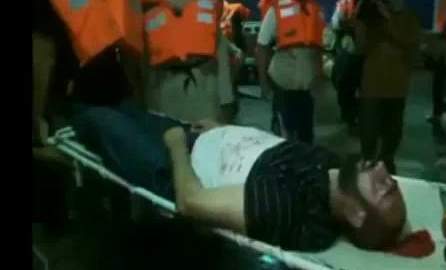

United States Plays Down UN Report on the Gaza Flotilla Attack
A United Nations fact finding mission into the May 31, 2010 Israeli lethal attacks of ships traveling to Gaza, has reported that Israeli forces violated international law, “including international humanitarian and human rights law.” Eight Turkish activists and one Turkish-American were killed in the raid on board the ships attempting to break the Gaza blockade. The UN Human Rights Council’s investigation judged Israel’s naval blockade of the Palestinian territory to be “unlawful” because there was a humanitarian crisis in Gaza at the time. However, the United States criticized what it termed as the report’s “unbalanced language, tone and conclusions.”
The Center for Constitutional Rights, the Free Gaza Movement and the National Lawyers Guild responded to the report and the comments made by the United States at the Council
“Unfortunately, the United States used the opportunity of the Human Right Council’s discussion on the flotilla fact-finding mission’s report to promote its political agenda instead of engaging on the issue of legal accountability for Israel’s illegal blockade of Gaza and the unlawful attack on the Gaza flotilla,” said CCR attorney Katherine Gallagher. “The U.S. must recognize that there can be no peace without justice, and that until it supports accountability for violations of international law–even when violations committed by Israel – instead of a culture of impunity, it lacks the legitimacy necessary to serve as a broker of peace.”
Attorney Katherine Gallagher:
- There were 6 civilian ships and their goal was to both bring humanitarian aid to Gaza which has been under a Naval blockade by Israel for the last 4 years as well as to challenge the legality.
- The United Nations back in June 2010 set up a fact finding mission. The 3 commissioners traveled to London, to Geneva, Istanbul and Jordan to interview passengers. They met with legal experts and others to analyze the evidence they heard.
- The UN fact finding report was submitted last week, 56 detailed pages of what precisely happened that night on those ships on the night of May 31. It was concluded that the blockade is illegal under international law. It found that the 6 ships traveling to Gaza to break the blockade presented no imminent threat to the Israelis.
- The 3 commissioners have experience in international law matters. One had been a judge on the international criminal court. Their conclusions are grounded in law and not political conclusions. They were peaceful protesters preparing for an attack on the ship.
- It’s hard to see what they find as unbalanced. I think the report is carefully written, it’s cautiously written beginning with an analysis of its own mandate. Turkey very much welcomed the report.
- The bulk of the passengers were detained in Israel, at detention sites that had already been established.
- Confiscated property consists of cameras, computer chips, video equipment. It contains electronic equipment that provides first hand evidence of the flotilla passengers activities and then the attack on the ship.
- In the past 4 months Israel has been in possession of that material.
Guest – Katherine Gallagher, Senior Staff Attorney at the Center for Constitutional Rights, where she focuses on holding individuals, including US and foreign government officials, and corporations, including private military contractors, accountable for serious human rights violations. Among the cases she is working on are Arar v. Ashcroft, Matar v. Dichter, Saleh v. Titan and Estate of Atban v. Blackwater.
———


Post Coup Honduran Human Rights Crisis
A human rights crisis continues to get worse in Honduras, more than a year after the June 28, 2009 military coup. People on the front lines that oppose the regime installed after the coup are beaten and illegally detained by the state. Nectali Rodezno, Co-Coordinator of National Front of Lawyers in Resistance Against the Coup in Honduras is among the lawyers dircectly involved in defending those are being abused and whose lives are on the line everyday. To inform people about the ongoing crisis in Honduras, there will be a speaking tour this fall called JUSTICE IN HONDURAS: Witness for Peace Mid-Atlantic Fall Speakers Tour will be November 1 – 22.
Attorney Pam Spees:
- From that moment on you began to see alot of repressive tactics immediately after the coup.
- Immediately, leaders of that resistance were being targeted. There were several key people who were killed in aftermath of the coup. Walter Trochez was a key LGBT activist who was targeted and killed in a very brutal way. You also saw the targeting of labor leaders. The killing continue even in this new de facto administration.
- In March you saw the targeting of journalists. In that month alone, 8 journalists were killed.
- The Honduran judiciary were taking certain steps before the coup to help undermine Zelaya and what he was doing. We’re still learning about how much of this was driven by official US policy.
- Before the coup we had the financial crisis in the US that was effecting food security which was making it difficult everywhere. Zelaya was trying to buffer the Hondurans against this. One of the things he did was raise the minimum wage. He raised it and tied it to the food index.
- The Bolivarian Alliance for the Peoples of Our America
- On June 28, the Honduran resistance has set up its own truth commission, The Alternative Truth Commission. The International Criminal Court is an actor and could investigate and potentially prosecute some of these acts.
- In the US we have the Alien Tort Statute. It’s a very old law that allows non-citizens to bring suit in US courts for violations of international law.
- The courage show by all sectors of this resistance is just incredible. www.resistenciahonduras.net
Guest – Pam Spees, senior staff attorney in the international human rights program at the Center for Constitutional Rights. She has a background in international criminal and human rights law with a gender focus, as well as criminal trial practice.
———————————————————————-
Criminalizing Dissent, Death Penalty, FBI Intrusion, Green Scare, Human Rights, Prison Industry, Supreme Court, Surveillance, Truth to Power
Podcast: Play in new window | Download
Updates:
———-
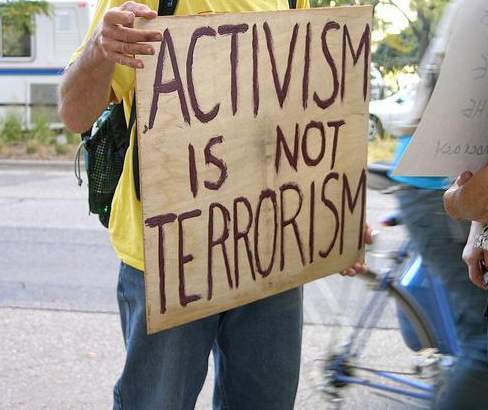

Nationally Coordinated FBI Raids Minnesota/Chicago
Last week the FBI raided six homes in Minneapolis and two in Chicago allegedly searching for links to terrorism. The Minneapolis raids targeted anti-war activists among them, Jessica Sundin, and Mick Kelly. They were key organizers of the big march on the first day of the RNC in 2008. In one Minneapolis home, FBI agents arrived with warrants, searched every room, attic and basement, looking through CDs DVDs, books, and photos. Passports, travel and phone records were among items seized from the homes. The FBI issued subpoenas for the peace activists to appear before a Grand Jury in Chicago on October 12. FBI’s search warrants indicate agents were looking for connections between local antiwar activists and groups in Colombia and the Middle East. NLG HOTLINE – 888-654-3265
Jim Fennerty:
- We’re putting a group of lawyers together from the National Lawyers Guild. We’re speaking to our clients right now about what a grand jury is, how it functions, and they have a right to refuse to testify at a grand jury or not. A total of 12 people were served with subpoenas.
- Humanitarian Law Project decision emboldens the government to push the envelope and see what they can get away with. I have not been told that anyone is a target, and we’re concerned about what that means.
- Technically the Attorney General’s office is not suppose to issue a subpoena to a target unless they get a higher authority to do that. Historically a grand jury was supposed to be citizens coming together to determine if charges should be filed criminally against somebody.
- Now it’s pretty much a rubber stamp for what the prosecutors want. People should be very concerned about going there, because what you say can be twisted around.
- Most cases, people can say they don’t want to testify at a grand jury, they’re going to exercise their fifth amendment rights against incrimination. However, if they offer you immunity and you refuse to testify, you can be taken to a judge, they’ll read the questions to the judge, and ask you to answer them.
- If you refuse to answer them then a judge can hold you in civil contempt and you can be incarcerated for the length of the remaining time of the grand jury. The government is not showing us all their cards, we don’t know where they’re going with this.
- Regarding activism: I’ve seen some unity here I’ve never seen before in my life, where groups that don’t get along, are now rallying around them.
- Do not speak to federal agent, do not lie to a federal agent. National Lawyers Guild Issues New Report on Policing of Protests
Guest – Attorney Jim Fennerty, attorney, activist and National Lawyers Guild member. Jim has been handling activist cases for 38 years.
——-

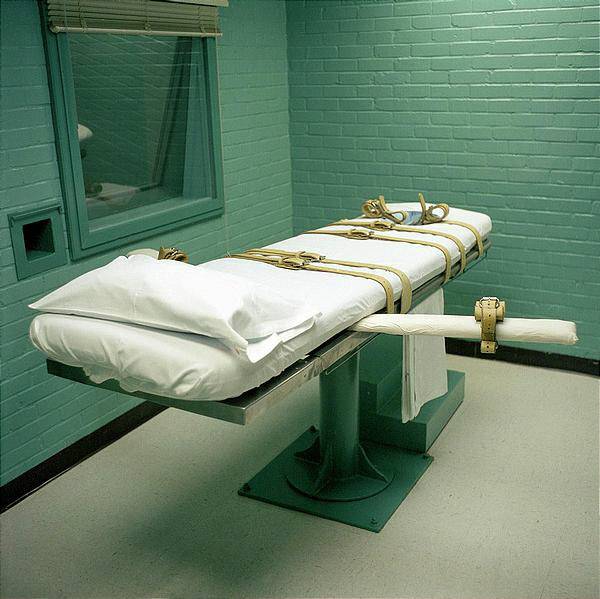
Death Penalty Cases -Virginia / Georgia / California
In late 2009, The American Law Institute which created the intellectual structure for the current capital justice system for nearly 50 years, essentially announced that its project has failed. The New York Times, in one article wrote the institute’s move represents a tectonic shift in legal theory. The article also points out that capital punishment was plagued by problems including racial disparities. We continue to see these types of problems in 3 recent death penalty cases in Virginia, Georgia and California. In Virginia, Teresa Lewis, a grandmother was the first woman to be executed in that state in nearly 100 years. Last week Teresa Lewis was given a lethal injection at 9PM in Greensville prison. Teresa was convicted of hiring two gunmen to shoot her husband and stepson to collect on their life insurance policy. Both gunmen were sentenced to life without parole. Attorneys argued that the court consider a key piece of evidence on Teresa’s behalf. That evidence was a letter from one of the gunmen who killed himself in jail in 2006, in which he claimed full responsibility for the murder plot and suggests he pushed Lewis into it. Lewis also had an IQ of 70.
Last week in a Georgia death penalty case, Brandon Joseph Rhode was found in his cell with his arms and neck slashed days before his scheduled execution by lethal injection. According to reports, his lawyers have pleaded clemency, arguing he suffered brain injury from alcoholism and because his mother took drugs during pregnancy. If executed, he will be the 25th person put to death by the state, the last one was in June. Rhode and an accomplice were sentenced to death for murdering an 11-year-old boy, his 15-year-old sister and their father during a botched robbery in 1998.
In California, a federal and state court judge refused death row inmate Albert Greenwood Brown’s request to block his scheduled execution. Brown and another death row inmate have filed a lawsuit challenging the state’s new lethal injection regulations,saying the procedures were improperly adopted. State procedures have since been revised after a federal judge halted the death penalty in California amid concern that it’s method lethal injection amounted to cruel and unusual punishment.
David Michaels:
- These are two horrible executions. Teresa Lewis had an IQ of 72. She was executed after Governor MacDonald refuse her clemency requests. The judge said she was the head of the serpent in this particular case and he decided horribly to have her executed.
- There’s no deterrent for people with the IQ of 72 or for someone with an IQ of 150. This murder happened in 1992, this execution happens in 2010.
- There are about 3 dozen states that have capital punishment laws. In California, one of the drugs they use for lethal injection has expired and they can’t get anymore.
- LINKS – NCADP / Death Penalty Information Service
Guest – Attorney David Seth Michaels. David has represented clients for 30 years, clients such as prison inmates in Mississippi and Tennessee. He’s worked with Brooklyn Legal Services B and with the Federal Defenders Service Appeals. He is also a novelist, has his own practice in New York. David Michaels’ Blog
—-


Circuit Court of Appeals Throws Out Nigerian Claims Against Shell Oil
It is now up to the Supreme Court to decide if corporations could be held liable in U.S. courts for violations of international human rights law. Recently, a U.S. Appeals Court dismissed a case against Royal Dutch Shell in which the oil company was accused of helping Nigerian authorities violently suppress protests against oil exploration in the 1990s. One judge on the three-member appeals court panel wrote a strong dissent of the majority opinion, calling it “a substantial blow to international law.” In a past interview with attorney Peter Weiss, Peter explained how a 1789 U.S. statute Alien Tort Claim was used to hold multinational corporations accountable for human rights crimes. The case was brought by families of seven Nigerians who were executed by a former military government for protesting Shell’s exploration and development.
Maria LaHood:
- This was a class action brought by the Ogoni people against Shell parent companies and Nigerian subsidiaries.
- They brought the case because Shell had been complicit with the military dictatorship in the nineties.
- They were detaining, torturing and killing people to oppress the grassroots opposition movement to Shell’s environmental degradation. Shell Oil is the US company.
- Basically, two judges went out of their way to find that corporations can’t be held liable for international human rights violations. The result is that corporations can profit from killing and torturing and can’t be required to compensate the victims.
- Hopefully this decision won’t stand. This is the first Circuit to rule like this.
- Unfortunately I think corporations are going to be submitting this decision in their own cases around the country. Hopefully, that won’t be successful. As it stands the decision applies to the Second Circuit, New York, Connecticut and Vermont.
- Even if this decision stands, the court left open and confirmed you can sue individuals. Even here we can sue CEOs and directors of corporations.
Guest – Attorney Maria LaHood has worked on the case Wiwa v. Royal Dutch/Shell, for the torture, detention and execution of Ken Saro-Wiwa and other human rights activists and protesters in Nigeria. Maria LaHood joined the Center for Constitutional Rights (CCR) in 2004. She specializes in international human rights litigation, seeking to hold government officials and corporations accountable for torture, extrajudicial killings, and war crimes abroad.
————————————————————————————————-
















